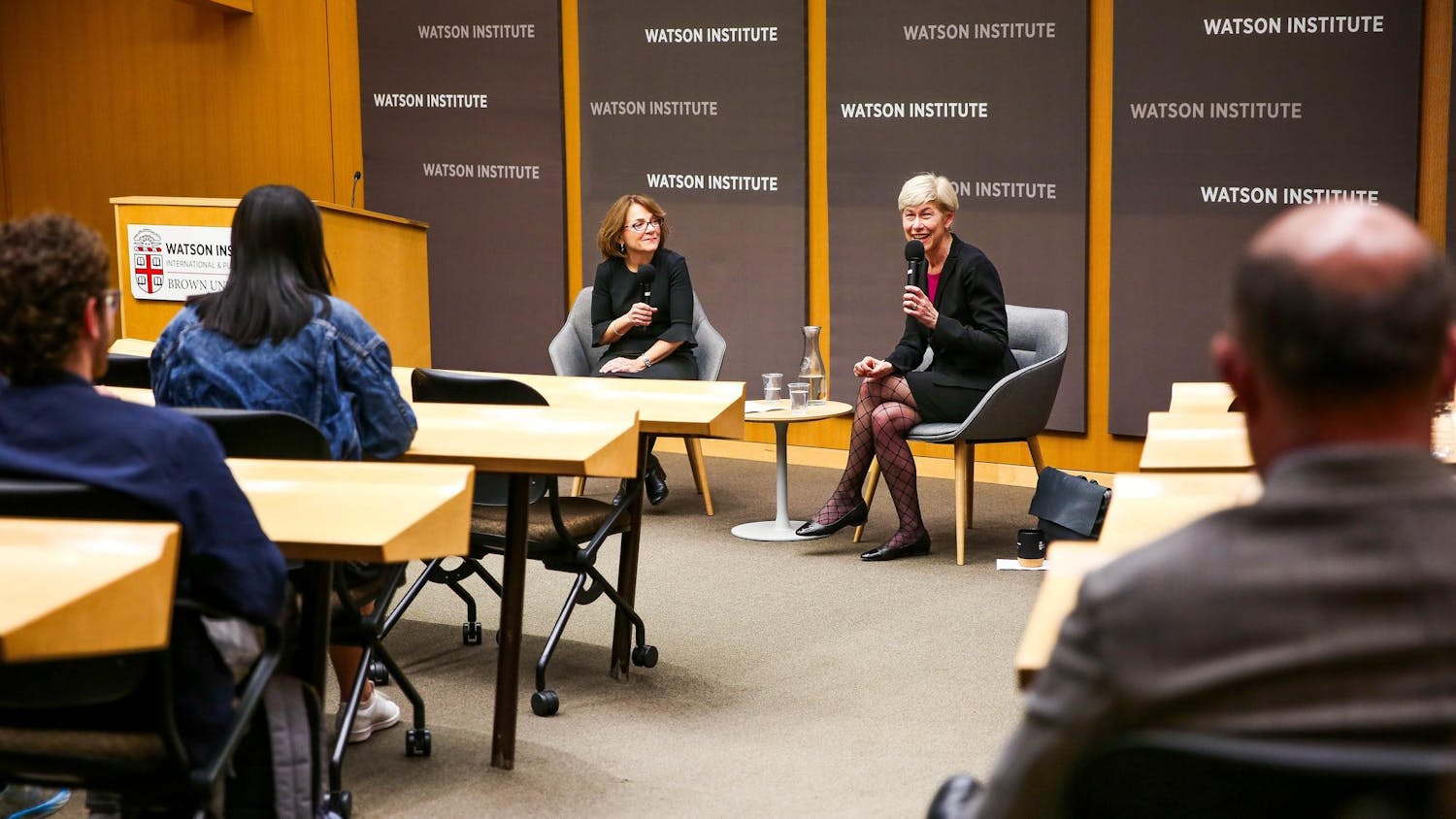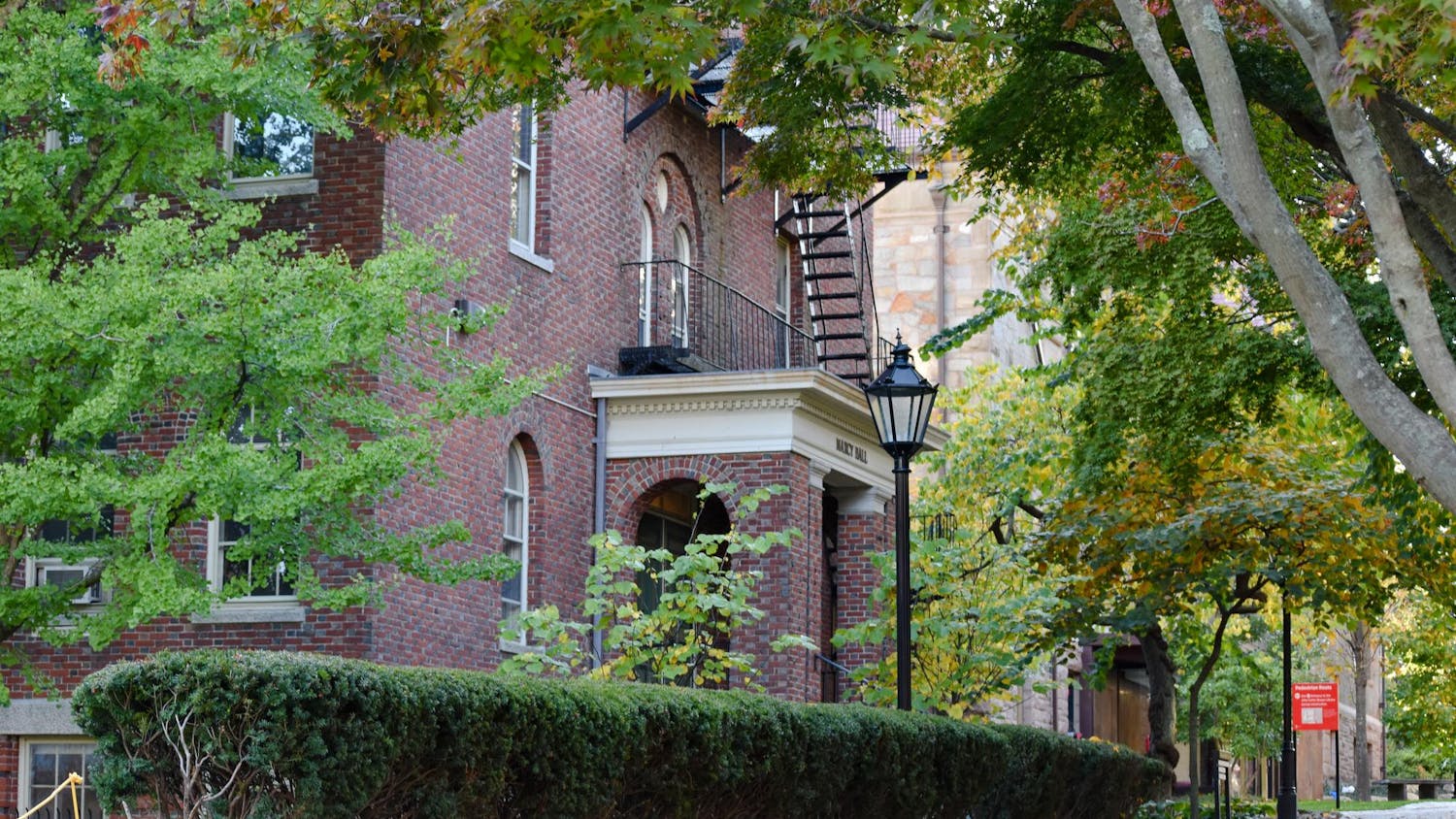The Corporation approved an $834.3 million budget, raised tuition and increased enrollment for the 2012 fiscal year at its meeting Saturday.
The University's highest governing body — which meets in February, May and October to formulate decisions on University operations — accepted a 3.5 percent rise in undergraduate tuition and fees to $53,136 for the upcoming year and approved a 6.4 percent increase in the 2012 operating budget. The tuition increase is slightly lower than the average annual 4.3 percent increase over the last five years, according to the University Resources Committee report, made available online this weekend. The URC is charged with outlining budget recommendations to the Corporation.
The increase is necessary to maintain recently inflated expenses, said Provost David Kertzer '69 P'95 P'98, citing rising faculty salaries and the cost of preserving University resources. The University also relies on tuition for additional expenses including strengthening academic programs and maintaining capital projects developed under the Campaign for Academic Enrichment.
"We're so tuition dependent," Kertzer said, because "students still expect the same level of academics" as other elite schools with larger endowments. Tuition accounts for 55 percent of the Education and General budget, according to the URC report.
The financial aid budget will rise by 8 percent to maintain the current rate of 43 percent of students who receive aid. Kertzer said financial aid continues to be a main priority for the University, despite the expenses necessary to maintain it.
Budgeted undergraduate enrollment will increase by 1.8 percent to 6,000 students, though the figure is slightly elevated to reflect the unexpectedly higher yield of the current junior class. The number of incoming first-years will be the same, Kertzer said, and the larger rising senior class will now be taken into account.
This meeting marks the first gathering of the Corporation since the conclusion of the Campaign for Academic Enrichment. In order to continue attracting revenue sources to the University, the Corporation created a Committee on Development, which will work to expand fundraising and development plans in the future, Kertzer said.
The University will also identify potential new investment resources, representing the third phase in a plan to cut budget deficits and spur growth following the 2008 economic collapse, according to an e-mail sent to the University community Feb. 12 by President Ruth Simmons. The first two phases included smaller operating budgets for the previous two fiscal years and faculty restructuring resulting in 60 staff layoffs and 140 early retirements last year.
As part of this third phase, the Corporation will look into developing a professional master's program to raise revenue, Kertzer said. Students entering graduate school from the workforce can receive monetary aid from their employers, thus requiring less financial aid and generating revenue, he said.
Corporation members also called for the administration to develop recommendations for the May meeting pertaining to the future of varsity athletics in the context of budgetary concerns. The University currently has the lowest athletics budget in the Ivy league, though it still supports a high number of teams, Kertzer said. Recommendations will also examine the number of slots set aside for varsity athletes during the admissions process. Simmons will be forming a committee to develop recommendations this week, Kertzer said.
The Corporation approved a recommendation from the Advisory Committee on Corporate Responsibility in Investment Policies to stop investing in hotels run by HEI Hotels & Resorts until they abide by higher standards for workers. "It's definitely a victory," said Lenora Knowles '11, a member of the Student Labor Alliance. "We're the first school to do this, so it's really a big deal."
The Corporation broke Saturday at noon for a memorial service to celebrate the life of Joseph Fernandez '85, the former president of the Brown Alumni Association and Corporation trustee, who died suddenly Dec. 18.
"As a family circle, we gather to take hands and to try to take heart," said University Chaplain Janet Cooper Nelson at the service.
The former city solicitor for Providence, Fernandez also served on the Multicultural Alumni Committee, as a trustee of Trinity Repertory Company and as a director of the Community College of Rhode Island Foundation.
"One could easily tell Joe was not a prepackaged version of a public servant," Simmons said at the ceremony. "He derived a great deal of satisfaction in the totality of his Brown experience."
The Corporation approved the appointment of the new association president George Billings '72 as a trustee this weekend. Billings said he plans to continue the work Fernandez started in expanding the connection between students and the University's 88,000 alumni.
"It's a little bit like losing a brother," Billings said.
The body also accepted $14.8 million in gifts and approved the establishment of new endowed professorships, including two named after Jonathan Nelson '77 P'07 P'09, the namesake for the Nelson Fitness Center slated to open in 2012. The Committee on Budget and Finance approved the beginning stages of the Hunter Laboratory renovations. Hunter Laboratory will be empty once renovations to the Metcalf Chemistry and Research Laboratory conclude. "Over the next year, there are going to be very important buildings opening," Kertzer said.
— Additional reporting by Alex Bell




